The Best (and the Rest) of 2011
Sorry about this—a 10-best list dragging along in the wake of all the others, which began appearing around Halloween And it isn’t even a nice round 10 in number I could come up with only six movies this year I have my excuses [Pictured above, Werner Herzog, director of "Into the Abyss"]Sorry about this—a 10-best list dragging along in the wake of all the others, which began appearing around Halloween [Above, Werner Herzog, director of "Into the Abyss"].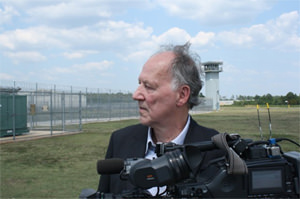
Sorry about this—a 10-best list dragging along in the wake of all the others, which began appearing around Halloween. And it isn’t even a nice round 10 in number. I could come up with only six movies this year. I have my excuses. I went away for a well-earned vacation. And then I came home only to be felled by a dreadful cold, which slowed things up still more.
But the real problem is that it was just a terrible year at the movies. Critics always start saying that around Dec. 1 every year. But this time they were right. So I consider myself lucky to have half a dozen on my list. And, by golly, you can consider yourself lucky to see any one of them. They are, by the way, presented in no particular order—though I do think the first of them is, in its way, a masterpiece.
“Into the Abyss.” That dauntless documentarian, Werner Herzog, investigates the case of two feckless Texas teenagers who killed a woman essentially because they wanted to go joy-riding in her car. They were quickly apprehended, and when Herzog interviews them, Michael Perry is about to be put to death by lethal injection, and his partner, Jason Burkett, is going to spend the rest of his life in prison. As always in his films, Herzog is the voice of reason, inquiring into the extreme—not to say hopeless—circumstances people sometimes find themselves in. These lads may not be entirely bright, but they are not completely stupid, either. I guess you could say that, for a few moments, things got out of hand with them.
That does not mean that Herzog thinks one of them should pay the ultimate price for his crime (though he does not ever say as much). His film, instead, is suffused with sorrow—Perry’s jailbird father wonders what he might have done to prevent his son from going wrong; a woman becomes romantically interested in Burkett and contrives to get herself pregnant by him; a prison guard who has overseen hundreds of executions quits his job (and his pension) because he cannot be a party to state-sponsored murder.
These are very simple people, but somehow, right up against the ultimate questions, they are haltingly, hesitantly asking the right questions. When the film had run its course, I found myself moved by it as I rarely am with fictional films. It is so raw, yet so gently put—and it puts to shame the many overheated melodramas on this subject. This, one feels, is how it really is to confront ritualized death—with a sad and shuddering sigh, with everyone speaking in banalities and clichés because our language does not have the words (or the moral amplitude) to confront the death penalty in all its terrible finality.
“J. Edgar.” This, to me, is the most curious disappointment of the year, for Clint Eastwood’s biographical drama of the late, entirely unlamented FBI director, based on a lapidary screenplay by Dustin Lance Black (who won an Oscar for “Milk”) is perhaps the most thoughtful film of 2011. I think the problem with it is that it seems like ancient history to most people (Hoover died in 1972). They seem unable to make the imaginative leap to see that paranoid figures like Hoover are ever-dangerous in a democracy.
At least Leonardo DiCaprio is being acknowledged for a performance that digs into the shriveled soul of the man who was, as the cliché of the time had it, the nation’s “top cop,” but who was, in fact, its top bureaucrat and—bitter irony here—probably a homosexual, in spirit if not in fact. In other words, at the time, he was keeping the biggest secret of them all. Democracy is a very peculiar institution, as this quietly arresting movie makes abundantly clear.
“Hugo.” This is the year’s most paradoxical movie—an epic kid’s picture. It is huge, expensive and, you’d think, bound to be a stumbling disaster. It’s not. Martin Scorsese’s adaptation of a justifiably beloved children’s novel is about a little boy living in a Paris train station, and incidentally discovering the forgotten movie pioneer Georges Melies (Ben Kingsley) running a humble shop there and restoring him to his former fame. Sacha Baron Cohen is on hand to be relieved of his bitterness, too. How the movie manages all this without falling into self-conscious mess is one of the year’s cinematic miracles.
You may think you owe it to your kids to take them to see “Hugo.” Wrong. You owe it to yourself see it. And be, of all rare things, enchanted by it.
“War Horse.” This film is part pastoral—in pre-World War I rural England, a boy acquires a horse named Joey whom he loves not wisely, but too well—and part sheer terror. The animal is drafted for duty in the trenches, and somehow survives the carnage and is returned to paradise when the shooting finally stops. Steven Spielberg’s film is an adaptation of a novel by Michael Morpurgo and of a stage production that featured large and complex puppets playing Joey and an equine companion. That was—no question about it—a fascinating coup de theatre, but I think the intense reality of the movie serves this story with equal force and passion.
In reality, I don’t suppose the horse would have survived more than a day or two in combat. But we desperately want him to—if only because we require some grace note to illuminate what is undoubtedly the most terrible war human history has yet recorded. Spielberg’s film is more than up to recording the horrors of trench warfare, and is also up to recording the honorable sentiments that somehow prevail—albeit provisionally (we are only 20 years from the next world war)—when the shooting finally stops. We feel entitled to the respite that descends, at last, on this film. Even though we know, of course, that it cannot last for very long. “My Week With Marilyn.” It’s a small, rather sly thing—the more or less true story of art historian Kenneth Clark’s son, who gets an entry-level job (read gofer) on “The Prince and the Showgirl,” the 1957 comedy in which Laurence Olivier co-starred with and—attempted to direct—Marilyn Monroe. The kid more or less inherits the companionship of MM—he’s the only person on the set who has nothing at stake with her—and they have a lovely time together.
Michelle Williams is not as voluptuous as Marilyn, but that’s the only thing she lacks. She’s funny, troubled, at odds with everyone but Eddie Redmayne, playing Clark with more shrewdness than you can imagine. Kenneth Branagh plays Olivier with consummate skill—constantly out-of-sorts with his co-star, but reluctantly aware that she has what he never had—true movie stardom. OK, it’s a trifle, but it’s perfectly judged (and the supporting bits—Arthur Miller, Paula Strasberg, et al—are beautifully done). They are all in some way serving Marilyn’s stardom; only Redmayne remembers that for all her troubles, she is still, at this point in her career, a girl who needs, for God’s sake, to have some fun—which he chastely and enthusiastically provides.
Oh, What the Hell. Woody Allen’s “Midnight in Paris” came out last spring, an unpromising season for pictures with award hopes. But it has hung on. And hung on. It is still playing widely and it is, reputedly, the biggest hit of his long career. The story of a screenwriter (Owen Wilson) involved with an awful fiancée and her even more dreadful family, it is in Allen’s very agreeable Magic Realist style. A mysterious car appears periodically and whisks the screenwriter backward in time to the Paris of Hemingway, Fitzgerald and Gertrude Stein. At the time, it seemed a pleasant, minor well-made film. But as 2011 wore on its charmless way, it began to seem perhaps more delightful than it first appeared. Expert lightness of being is never to be sneezed at. Perhaps somewhat to Allen’s embarrassment, it is probably going to get some Oscar nominations. And why not? A feathery touch is always welcome. So here it is, shyly peeping up on 10-best lists. And more welcome than one might have thought last spring.
That’s All He Wrote. Pathetic isn’t it? I mean, a whole year of movies and he can come up with only six that he’s more or less confident will stand the test of time—defined as being able to remember their titles a year hence. But that, sometimes—most of the time, if we’re being completely honest about it—is the way it goes. I know people disagree with me. But the fact is, I think, more than usual this year, the more aspiring movies have let us down.
Take, for convenient example, “The Tree of Life.” Terry Malick was once an extraordinarily talented director, but that was back in 1973 when “Badlands,” so rich in irony and high spirits, came out. In the reclusive years since, he has gone from portentous emptiness to the incoherence of this truly wretched film in which a group of unattractive people glumly search for meaning and come up empty.
Then there’s Stephen Daldry’s “Extremely Loud & Incredibly Close,” in which a lad searches New York City to find the lock that fits the key his father, a victim of 9/11, left behind. It’s aimless and endless and yields nothing but low moans of pain from entrapped audiences. When our most aspiring movies fail us, we fall back gratefully on the modest and the merely well-made—movies with a sharp point and the means to make that point efficiently and with professional élan. That’s rare enough, as anyone can see by the brevity of this list.
Better luck next year. But don’t count on it.
Your support matters…Independent journalism is under threat and overshadowed by heavily funded mainstream media.
You can help level the playing field. Become a member.
Your tax-deductible contribution keeps us digging beneath the headlines to give you thought-provoking, investigative reporting and analysis that unearths what's really happening- without compromise.
Give today to support our courageous, independent journalists.
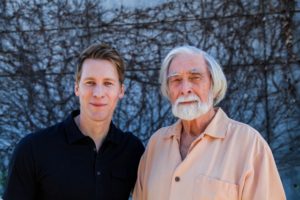
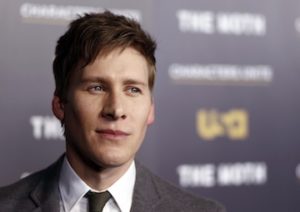
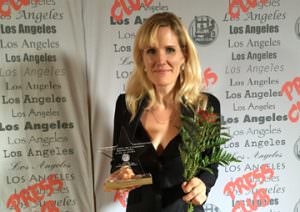
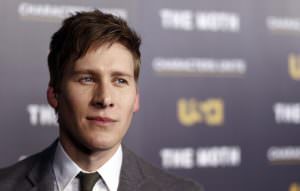
You need to be a supporter to comment.
There are currently no responses to this article.
Be the first to respond.